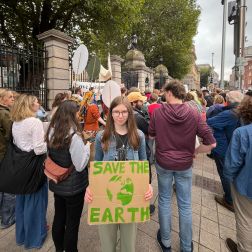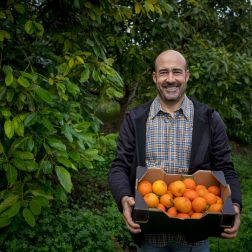- 3 mins read time
- Published: 18th August 2016
World Humanitarian Day: The people behind emergency responses
"World Humanitarian Day is an annual reminder of the need to act to alleviate the suffering. It is also an occasion to honour the humanitarian workers and volunteers toiling on the frontlines of crises. I pay tribute to these dedicated women and men who brave danger to help others at far greater risk." — UN Secretary-General, Ban Ki-moon
On this World Humanitarian Day, we recognise the people who work tirelessly to deliver crucial humanitarian support to families and communities around the world. Each year more than 30 million people flee their homes as a result of conflict and natural disaster and over 500,000 people are killed in war. Oxfam is currently working in emergencies in over 30 countries. Some are in the public eye; some are forgotten and out of the spotlight. Thanks to the continued dedication of humanitarian workers such as those featured below, we’re able to respond to wherever we’re needed.
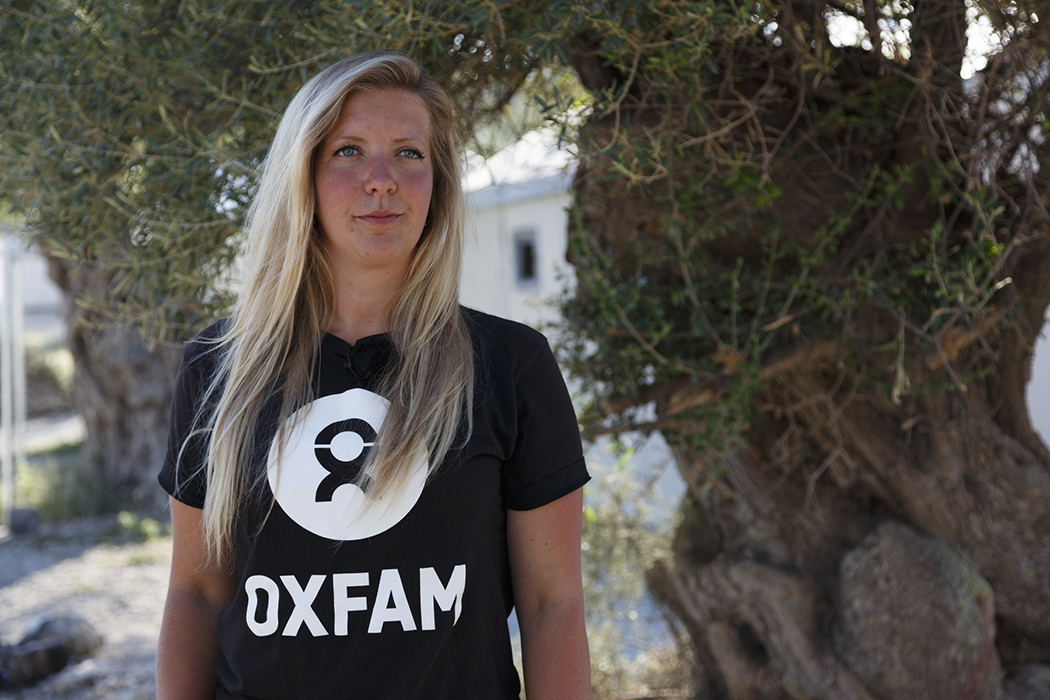
Sara Zehl (29) from Germany volunteers as a team leader with Oxfam, managing the distribution in the Kara Tepe camp on the island of Lesvos.
Speaking about her decision to come to Greece, Sara says: “I was at home literally sat on the couch watching the news. And I just wanted to come over and help, both the people arriving and the Greek population too, to support everyone. So I left my job working in hotel management and flew over. I have been here for six months now and whilst it is hard seeing families in this situation, I am passionate about helping and trying to make a difference."
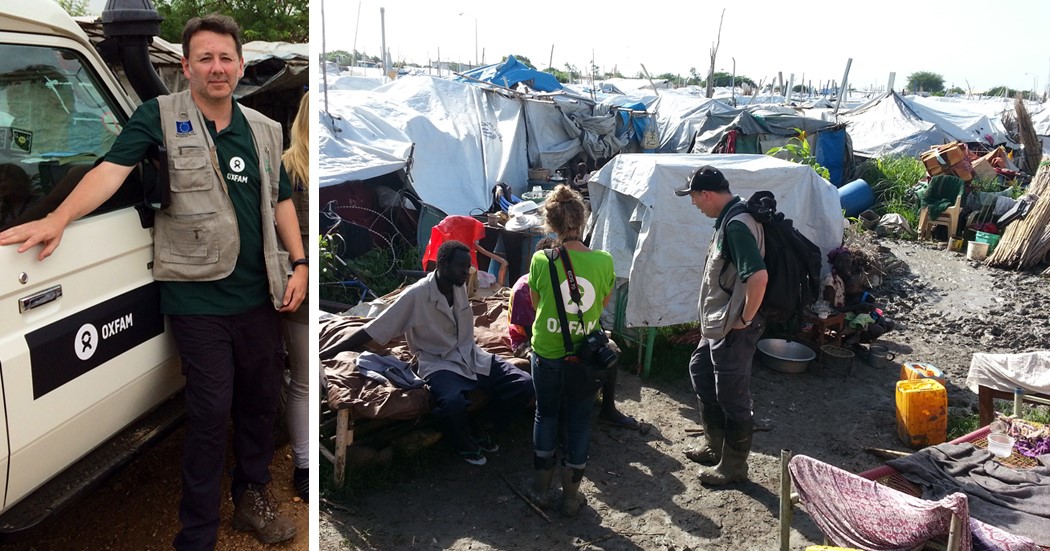
Colm Byrne, Oxfam Ireland's Humanitarian Manager, is pictured here during a monitoring visit to Malakal, South Sudan. This region was the first place where Colm was deployed as a humanitarian worker and so when the opportunity arose to return with Oxfam, Colm says he “couldn’t say no”.
Colm’s motivation to engage in humanitarian work stems from a moment many will remember - the 1984 famine in East Africa which inspired Band Aid and subsequently Live Aid. Speaking about how his perspective on aid work has changed over time, Colm says: “I’ve learnt that being a humanitarian is broader than I originally thought. It’s not just about people on the front line. There are lots of ways of being a humanitarian – whether you’re an urban planner creating safe spaces for people to live or local fundraiser who generates vital income.”
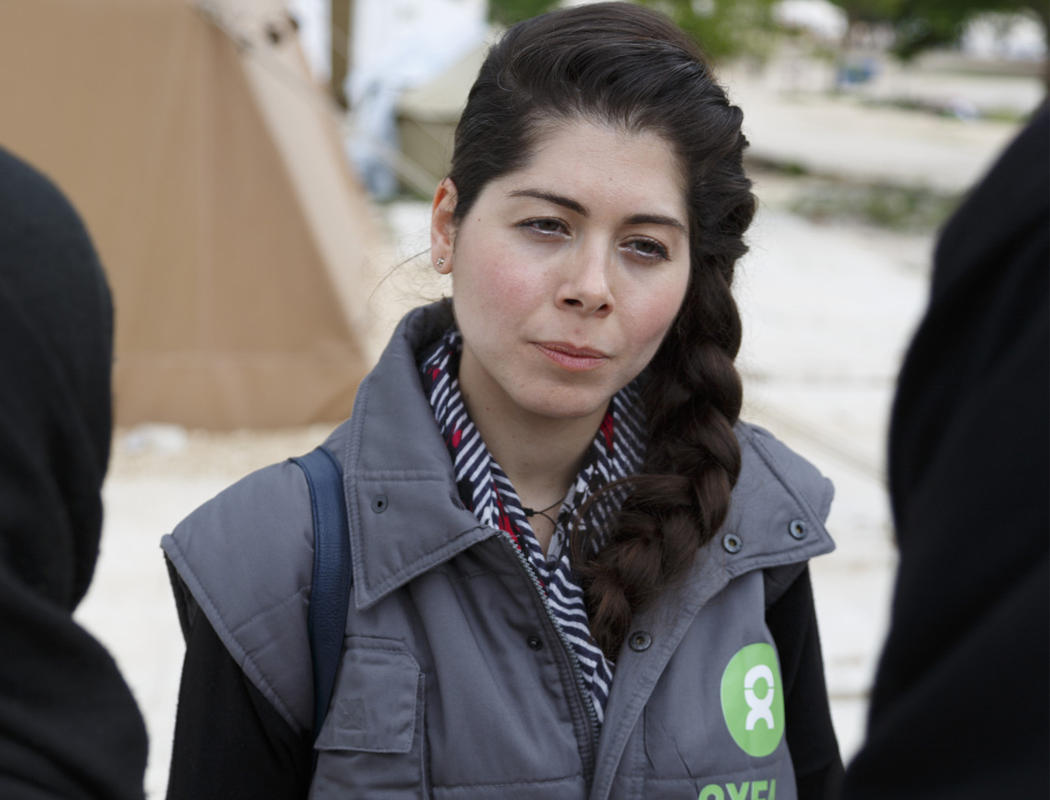
Marianna Kapelle is a member of Oxfam's gender and protection team in the Filippiada camp, Epirus Region, northwest Greece. Speaking about her work, Marianna says: “As a Protection Officer with Oxfam I spend most of my time in the camps, talking with the refugees mostly in Arabic, which is my passion and helps people to share their thoughts and feel more comfortable. Part of my role is to provide as much information as possible so people are able to make the best choices for themselves and their families. I am so grateful to be able to support people who are so resilient and brave, despite everything they have been through. Everyone has so much hope still and open-hearted smiles. This is something that inspires me every day."
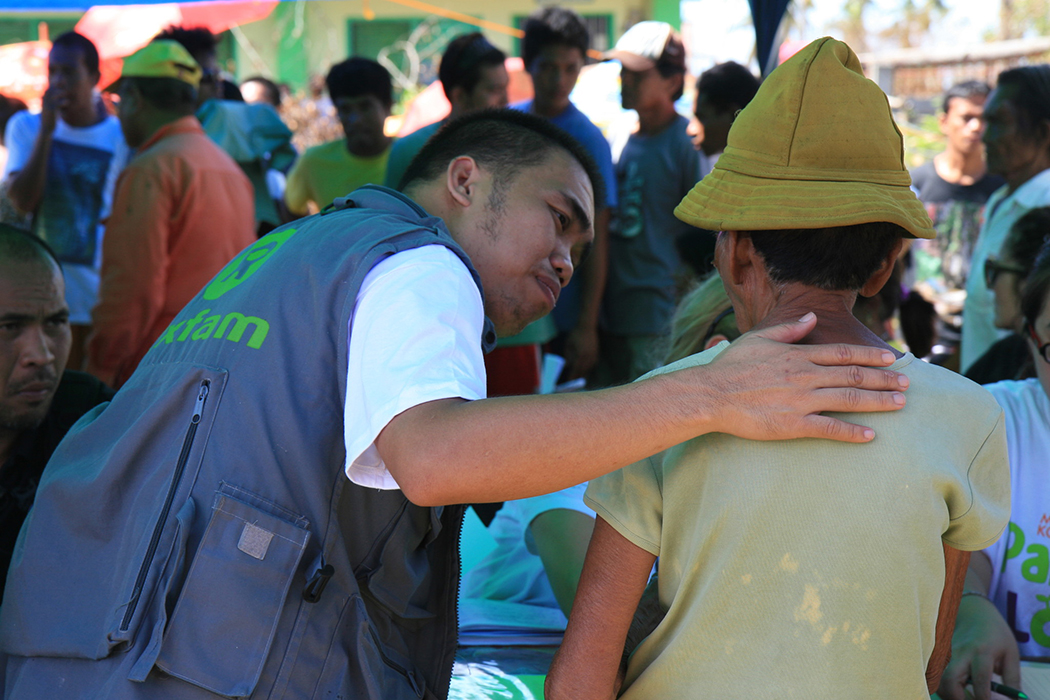
Vincent Malasador was part of Oxfam’s rapid assessment team that responded in the immediate aftermath to Typhoon Haiyan in the Philippines in 2013. Vincent’s dedication to the cause is clear when he describes a typical work day: “We would wake up very early, take our lunch at sundown and take our sleep hours past midnight; this was the life we had to live so that we could provide the support that the struggling communities needed to survive.”


